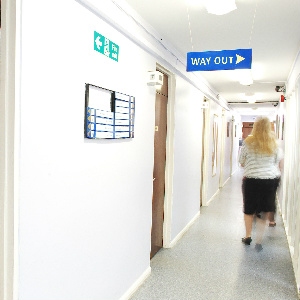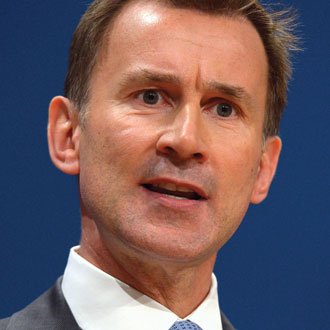The ‘one stop shop’ GP revolution

NHS chiefs across England have been drawing up secret plans for months. Prepared in shadowy committee rooms, their contents have been shielded from public view.
The plans will mean practices take on a whole raft of new responsibilities. Yet GPs have largely been excluded from the process. NHS England has refused to publish any draft reports, and rejected all requests under the Freedom of Information Act to share them – including several from Pulse.
Why the extreme secrecy? Drenched in management-speak, the so-called ‘Sustainability and Transformation Plans’ (STPs) are likely to be the most contentious change in the health service since the Lansley reforms in 2012. These blueprints for the future of the NHS include downgrading or closing hospitals, consolidating general practice and shifting more care into the community.
Announced this time last year, they are part of a ‘financial reset’ for the health service and have split England into 44 ‘footprints’. The intervening months have seen regional teams, CCGs, trusts and local authorities working together to draw up the plans, with the aim of ensuring the NHS can deliver the ‘right care, in the right place, with optimal value’.
But along the way, they have omitted to involve the main group of professionals whose buy-in will be required to make the plans work: GPs.
Pulse warned in August of LMC leaders saying they were being ‘excluded’ from discussions over the vital new plans. A recent survey of consultants and GPs carried out by the BMA revealed 59% had not even heard of STPs.
A recent King’s Fund report found some regions used CCGs as a ‘proxy for GP involvement’. Hugh Alderwick, a senior policy adviser at the think tank, says: ‘Gaining meaningful involvement in the plans from anybody was difficult within the time available. So within the NHS the groups least involved were GPs, clinicians, and frontline staff.’1
But some details have leaked out, and they have big implications for GPs.
GPs in Nottinghamshire may have to shoulder an increasing burden of patient care, following the merger of two acute care trusts, and more than half of community hospital beds in East Devon could be closed.
In north London, 500 hospital beds face the axe and managers want all practices to have list sizes of more than 10,000, as part of moves to create primary care ‘hubs’ covering 30,000 patients.
Patients would prefer problems to be solved in general practice
Health scretary Jeremy Hunt

jeremy hunt press association SUO 330x330px
And health secretary Jeremy Hunt has begun preparing the ground for a ‘dramatic expansion’ in the role of GP practices, as secondary care is cut. At last month’s National Association of Primary Care Best Practice 2016 conference, he said he wanted to make GP practices ‘one-stop shops’, with many more pathways of care beginning and ending in primary care.
Mr Hunt said the NHS has to ‘get back to basics and think how many issues and problems could be solved with a visit to a general practice’ rather than ‘sending someone to the back of another queue’.
He added: ‘I think patients would much prefer it if a lot of those problems were sorted out inside general practice. You will be hearing more about what I am calling “the GP one-stop programme”, looking at areas like diabetes, end-stage renal, and many others.
‘We are going to go through, situation by situation, condition by condition, and ask what barriers we can remove centrally to allow more of this work to happen in general practice.’
He admitted that this meant asking GPs to ‘do more work’ but said that they would be ‘paid for doing that’ and argued it would also ‘make life more rewarding’.
NHS England says this work would be based on the existing ‘new models of care’ running in some areas of the country.
A spokesperson tells Pulse: ‘There are opportunities to integrate consultant outpatient services and the support offered by GPs, particularly for long-term conditions such as diabetes, rheumatology and heart problems. This is happening in places such as Tower Hamlets, Portsmouth and Northumbria, and we now want to expand this dramatically.’
Success
In these areas, practices have been hosting Saturday clinics alongside outpatient specialists, specialty consultants and technicians to improve management of patients with respiratory conditions, or been given access to nasendoscopes, CT, MRI and some simple radiology for ENT patients.
Practices in East Hampshire have been operating successful ‘carousel clinics’ on Saturdays, with respiratory specialists coming in to treat patients with asthma, COPD and breathlessness.
Speaking to Pulse, NHS England chief executive Simon Stevens says groups of practices could take on responsibility for ‘cardiology, diabetology – all the -ologies’.
Mr Stevens says the aim is to replace the current system, where ‘patients are sent off with a referral and the next contact comes when the GP receives a letter from the consultant’s medical secretary weeks or months later’.
Many GPs will agree with these aims. Deputy chair Dr Richard Vautrey says: ‘Practices would welcome stronger links with their local specialist colleagues and sharing management in a way that reduced patients’ need to attend hospital.’
However, with brutal cuts planned to secondary care via the STPs, the danger is funding will not follow the extra work. Dr Vautrey says the changes cannot ‘just shift more unfunded work on to the already overburdened shoulders of GPs, and the resources to sustain such community-based services must be fully provided’.
If this does not happen, Mr Hunt’s ‘one stop shop’ idea for GP practices will be dead in the water.
Q&A: The secretive plans that will determine the future of the NHS
What are ‘sustainability and transformation plans’?
They are plans for the future of health and care services in England, aimed at building on the Five Year Forward View and restoring financial balance. NHS England has divided the country into 44 ‘footprint’ areas, with area teams, acute trusts, CCGs and local authorities collaborating to produce the plans.
What are the plans suggesting?
With few published, it has been impossible to get a full national picture. However, those that have been issued offer radical recommendations: managers are proposing to close more than half of community hospital beds in East Devon; the Dorset plan says its 98 GP practices at 135 sites will ‘overstretch’ local ‘workforce and finances’ and suggests a reduction; in north London, managers want no practices with list sizes of less than 10,000.
Why is little known about them?
NHS England and the footprint areas have strived to conceal the STPs – the King’s Fund think tank even found NHS England had trained managers in how to prevent the plans’ release under the Freedom of Information Act.1 But some areas have rebelled against this secrecy, and other plans have been leaked to the media.
How will GPs be affected?
Many STPs set out secondary care cuts, with GP practices increasing in size to pick up the slack. This feeds into the Government’s ‘one-stop shop’ strategy, whereby practices will offer specialised renal, respiratory, ENT and diabetes care, and more. However, managers in Hampshire and Isle of Wight want to cut GP workload by almost a third.
What happens next?
Publication of STPs will continue in the months ahead. NHS England says they will be consulted on, but the Local Government Association, among others, fears consultation will simply be on ‘pre-determined solutions’.
Reference
Pulse July survey
Take our July 2025 survey to potentially win £1.000 worth of tokens












